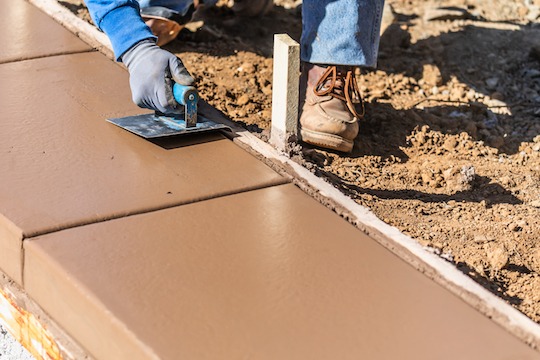A driveway project might seem like buying a commodity, i.e., one paver is the same as the next. But often a lower price means lower quality – and higher risk.
If your house needs a new driveway, you find an asphalt paving company and they just do it, right? I mean, every house has a driveway. Everyone just pays the driveway contractor. This isn’t complicated.
Or is it? There are driveways that turn out badly. Generally speaking, there can be poorly installed driveways that rut (get depressions), have cracks and potholes, or sometimes don’t hold up to seismic events or shifts in the subsoil.
What is not apparent in looking at the driveways of home upon home upon home are the liability costs that sometimes happen with asphalt or concrete driveways. Heck, even a beautiful paver drive-up can be riddled with lawsuits.
The reason any driveway ends up being problematic – i.e., an expensive headache – is when the workmanship is poor or the crews doing the actual work are inadequately trained and protected. From a safety standpoint, poorly -trained or -managed work crews might have serious accidents when handling hot asphalt or heavy concrete. Believe it or not, those accidents might cost you, the customer, a lot of money.
The reasons subcontractors are sometimes used in paving projects are when the homeowner is actually engaged in a larger landscaping or building project, where the primary provider is a landscape architect or a builder. You hire them, and they hire various subs where their expertise isn’t right for the job. Or, the nature of the job – on a hilly site perhaps – requires a little more engineering than is typical. That might involve soils experts and other civil engineering work, and they might have preferred suppliers for such projects.
Where subcontracting gets unnecessarily risky is when the “contractor” cuts corners on the types of labor used to do the work. They would do this to reduce their labor costs – which might make them the lowest bidder, should you approach this by getting competitive bids – because the contractor doesn’t cover health insurance, payroll taxes, or, most importantly, accident compensation insurance. Even worse, that corner cutting might mean the contractor lacks liability insurance.
In the case of a failed end product, or an injury-causing accident, there actually is a risk to the homeowner. Obviously, a bad paving job might require a re-do, which may or may not be an expense borne by the homeowner. In an accident, the project might go on a pause, before being completed, in part because the contractor then needs to recruit new workers for the project. If the injured worker decides to sue the employer for injury compensation, which the employer has no insurance against, it’s in the realm of possibility that a sharp legal team will also seek damaged from the owner of the site where the accident occurred.
To mitigate these risks, the homeowner can ask for proof of the following: a valid contractor’s license, workers compensation insurance, and liability insurance. Additionally, client testimonials, online reviews, a project portfolio (with photos) all provide evidence of when you’re working with quality contractors and not just a hodgepodge of under-trained, risky laborers.


